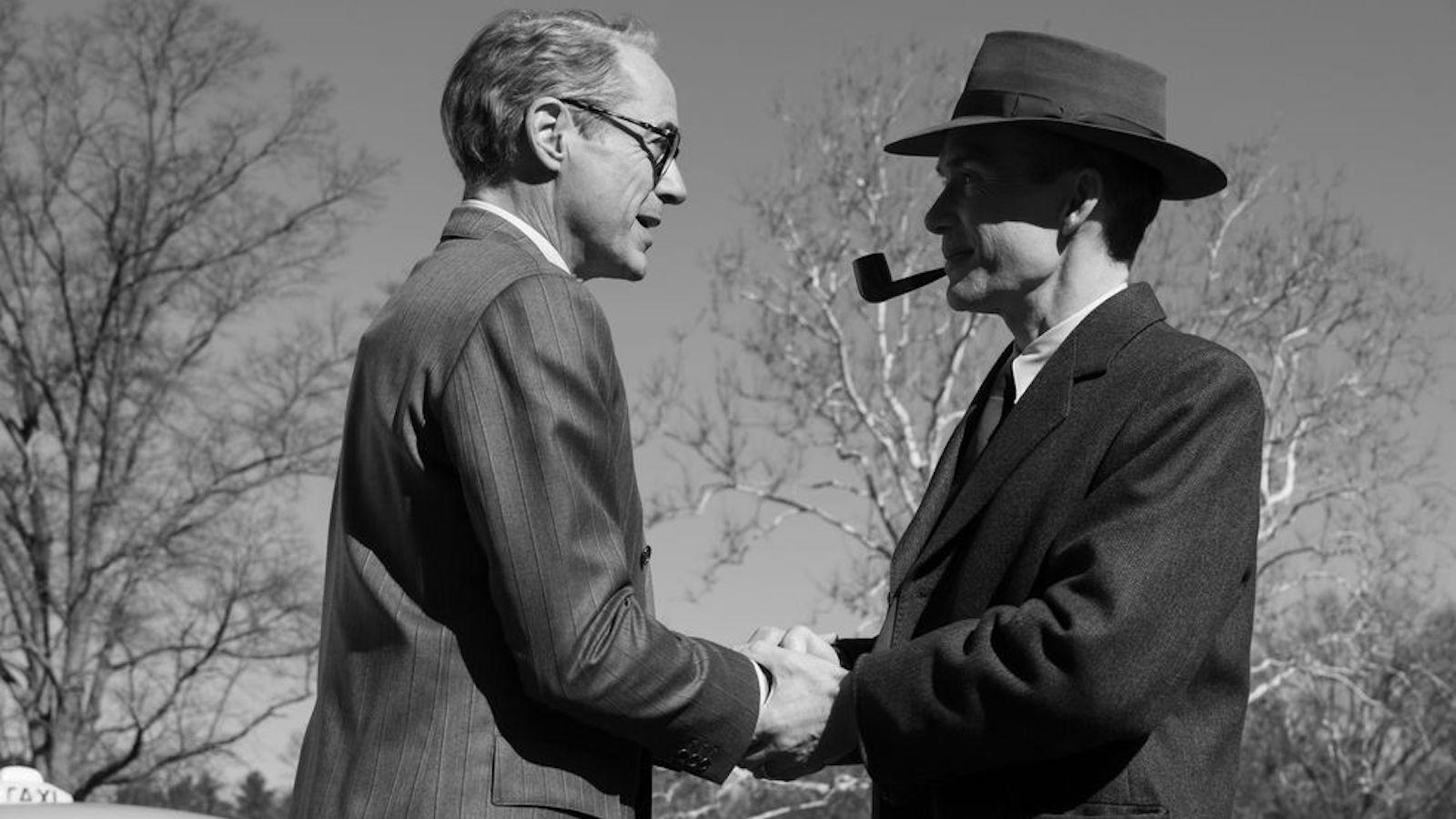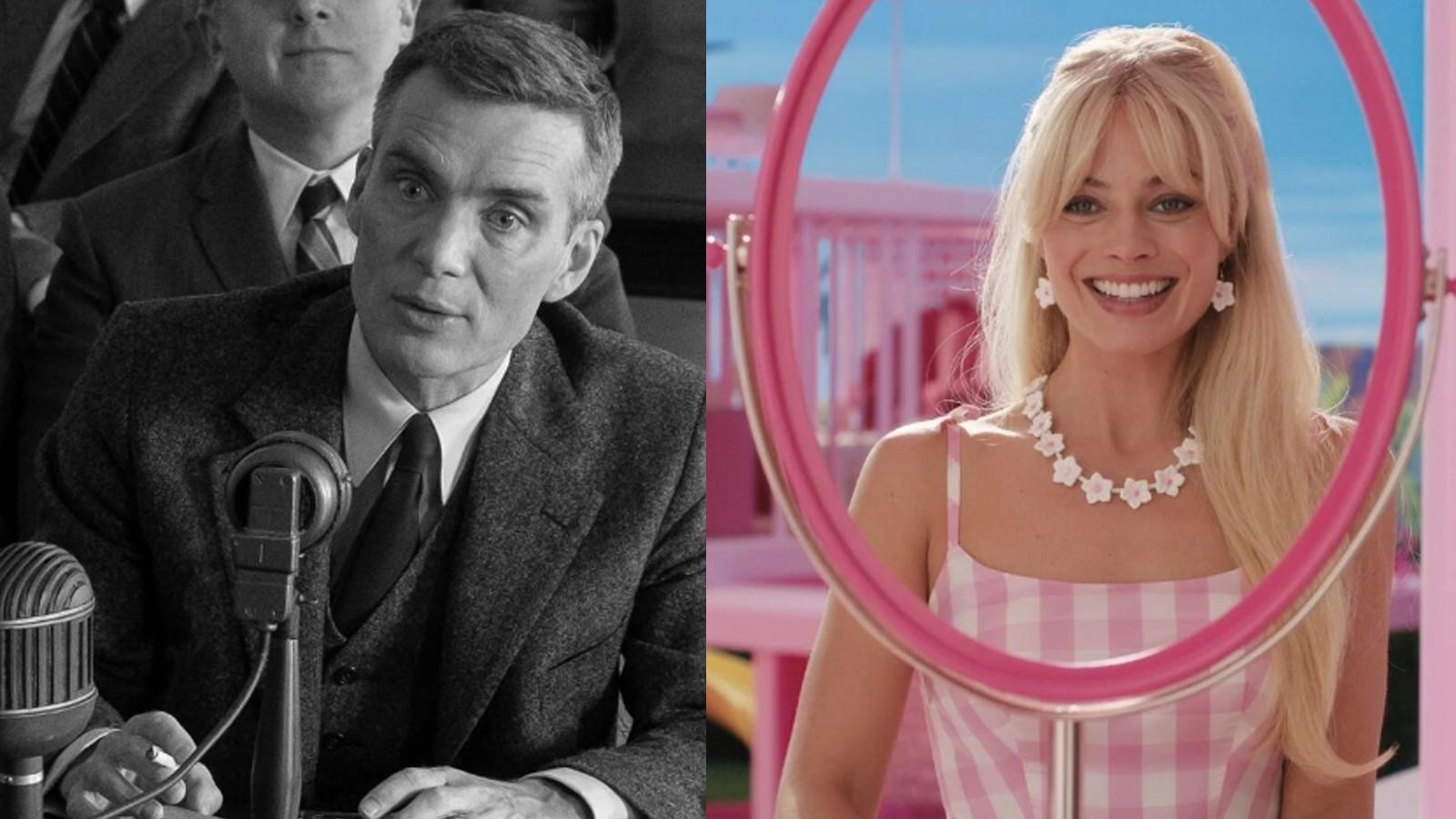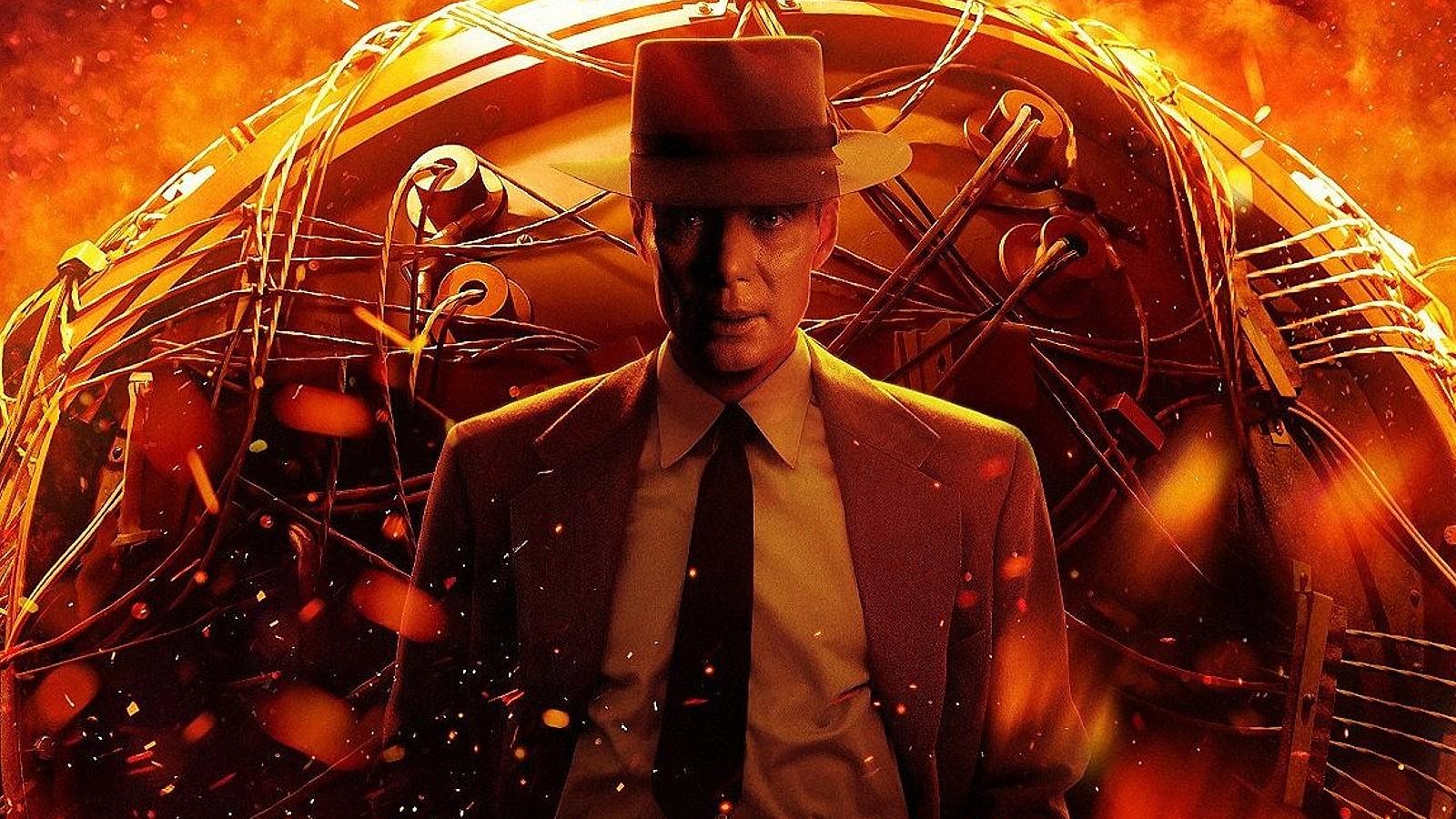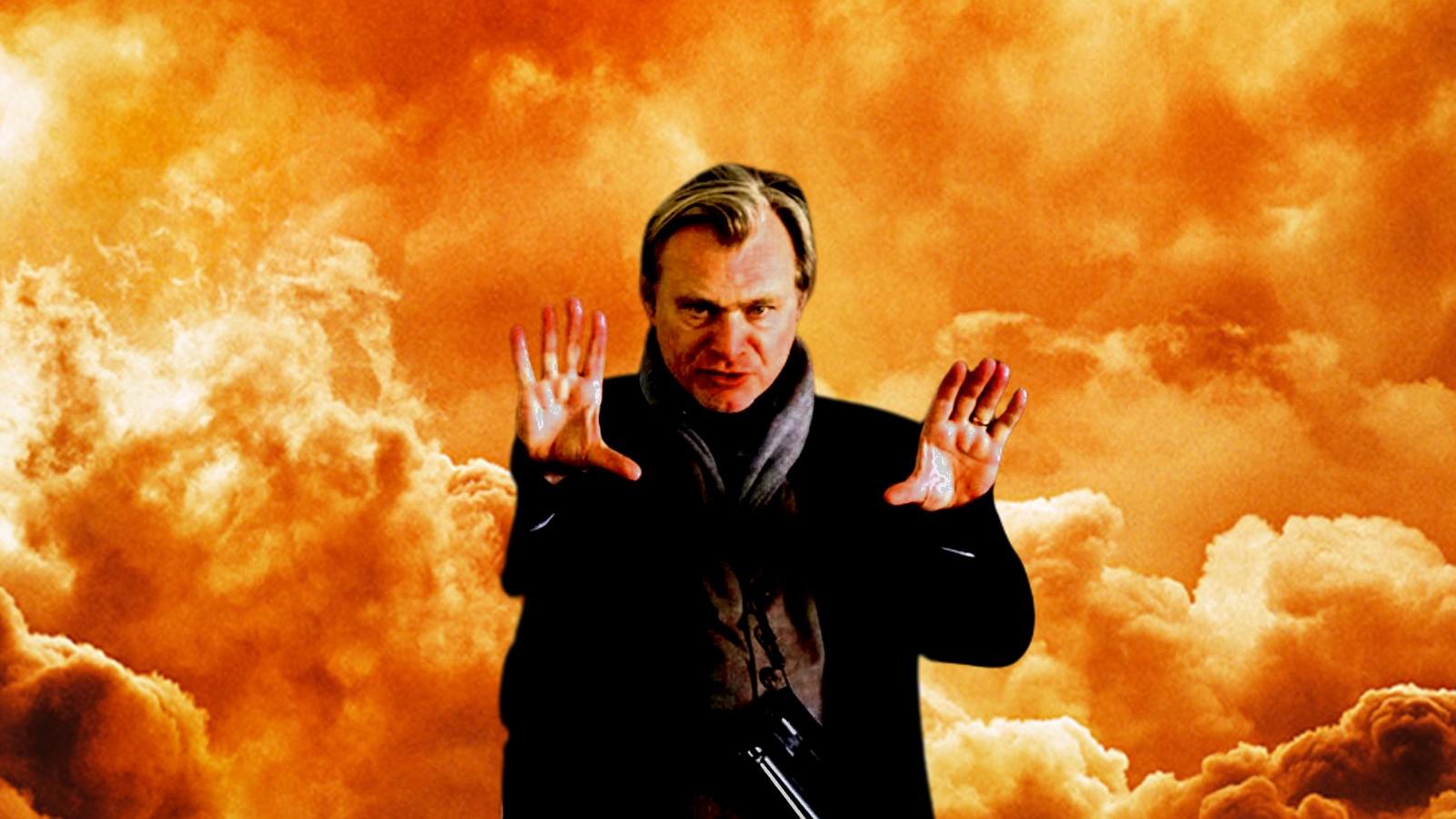Oppenheimer: Christopher Nolan shares “biggest danger of AI”
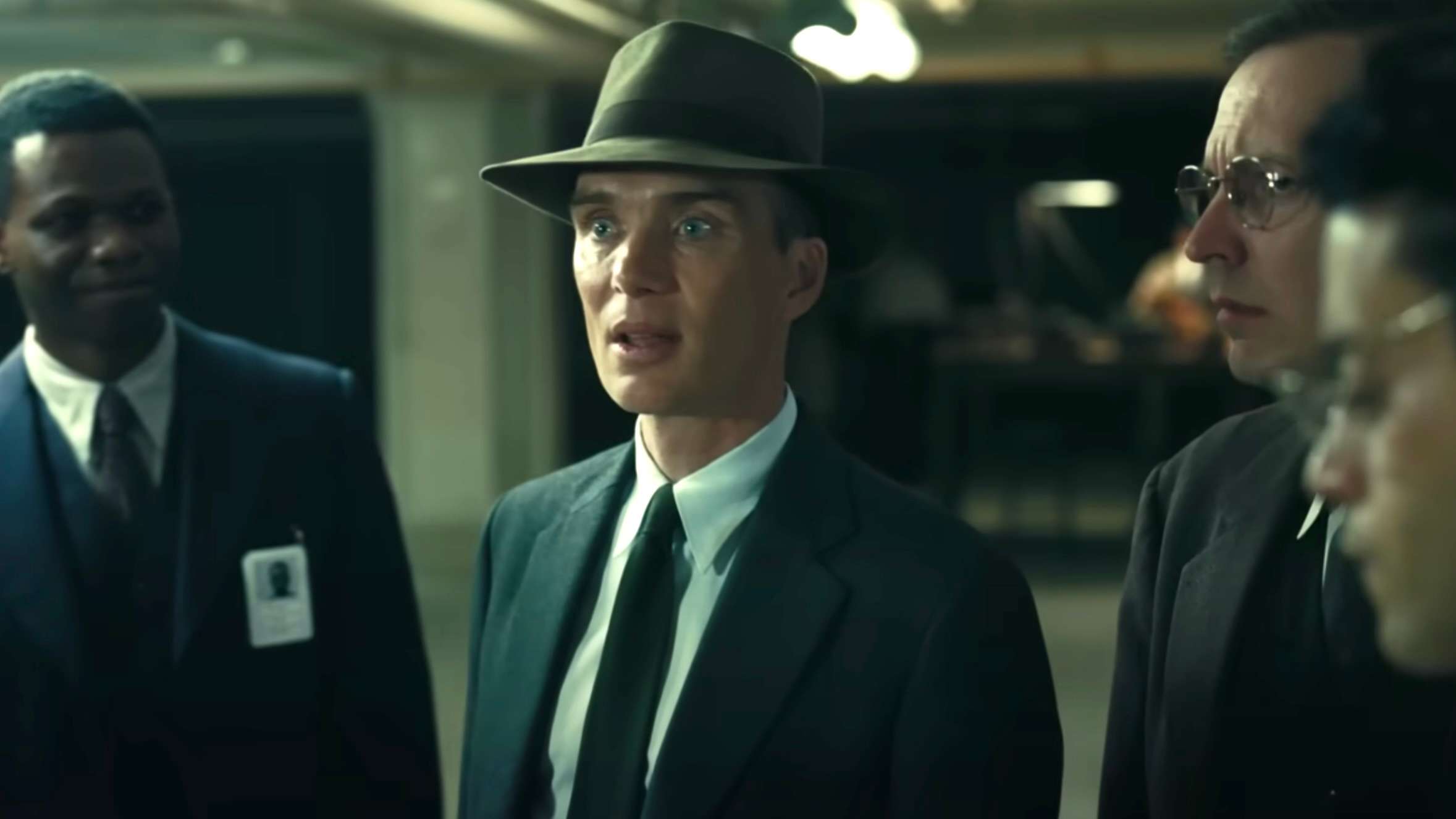 Universal Pictures
Universal PicturesWith Oppenheimer set to his screens next month, director Christopher Nolan has been discussing the dangers of AI, and comparing them to the threat of the atomic bomb.
Nolan’s new film is based on the Pulitzer Prize-winning book American ‘Prometheus: The Triumph and Tragedy of J. Robert Oppenheimer’ by Kai Bird and Martin J. Sherwin.
The film serves as a loose biopic of the title character, while also detailing how and why the atomic bomb came into existence.
With AI becoming increasingly prevalent in all walks of life, and Chat GPT filling increasing column inches – through stories about AI, and articles written by actual bots – Nolan is now addressing the parallels.
Oppenheimer: Christopher Nolan shares “biggest danger of AI”
When asked if there’s a comparison to be made between unleashing the atomic bomb, and introducing AI technology, Nolan tells Wired: “I think the relationship is an interesting one. It’s not the same. But it’s the best analogy – which is why I used it in Tenet – for the dangers of unthinkingly unleashing a new technology on the world. It’s a cautionary tale. There are lessons to be learned from it. Having said that, I do believe the atomic bomb is in a class of its own as far as technologies that have changed and endangered the world.”
Of the differences, Nolan states: “The scientists dealing with the splitting of the atom kept trying to explain to the government, ‘This is a fact of nature.’ God has done this. Or the creator or whoever you want it to be. This is Mother Nature. And so, inevitably, it’s just knowledge about nature. It’s going to happen. There’s no hiding it. We don’t own it. We didn’t create it. They viewed it as that. And I think you’d be very hard-pressed to make that argument about AI. I mean, I’m sure some will.
He adds: “The growth of AI in terms of weapons systems and the problems that it is going to create have been very apparent for a lot of years. Few journalists bothered to write about it. Now that there’s a chatbot that can write an article for a local newspaper, suddenly it’s a crisis.”
Attributing “godlike characteristics” to AI
In the wide-ranging Wired interview, the Oppenheimer director drills down into the problem, saying: “The issue with AI, to me, is a very simple one. It’s like the term algorithm. We watch companies use algorithms, and now AI, as a means of evading responsibility for their actions.
“If we endorse the view that AI is all-powerful, we are endorsing the view that it can alleviate people of responsibility for their actions – militarily, socioeconomically, whatever. The biggest danger of AI is that we attribute these godlike characteristics to it and therefore let ourselves off the hook. I don’t know what the mythological underpinnings of this are, but throughout history there’s this tendency of human beings to create false idols, to mold something in our own image and then say we’ve got godlike powers because we did that.
Nolan also sees an issue with how the technology is being pitched, saying: “There was an interesting article in the LA Times about ChatGPT and OpenAI. It basically said it’s a sales pitch, that they’re a private company now. And they have the greatest sales pitch in the world, which is, ‘This is a really dangerous thing. Maybe we shouldn’t put it out there.’ So now everyone wants it. Doesn’t mean there isn’t a real danger here, because I feel that there is. But I personally, and this is just my opinion, I identify the danger as the abdication of responsibility.”
How Nolan plans to use AI
Regarding the artistic benefits of AI, the Oppenheimer helmer tells Wired: “The whole machine learning as applied to deepfake technology, that’s an extraordinary step forward in visual effects and in what you could do with audio. There will be wonderful things that will come out, longer term, in terms of environments, in terms of building a doorway or a window, in terms of pooling the massive data of what things look like, and how light reacts to materials. Those things are going to be enormously powerful tools.”
As for Nolan using it himself, he says: “I’m, you know, very much the old analog fusty filmmaker. I shoot on film. And I try to give the actors a complete reality around it. My position on technology as far as it relates to my work is that I want to use technology for what it’s best for. Like if we do a stunt, a hazardous stunt. You could do it with much more visible wires, and then you just paint out the wires. Things like that.
Finally, Nolan claims: “It might finally break the barrier between animation and photography. Because it’s a hybrid. If you tell an artist to, say, draw a picture of an astronaut, they’re inventing from memory or looking at references. With AI, it’s a different approach, where you’re actually using the entire history of imagery… using actual images, but in a completely, fundamentally rebuilt manner – which of course raises significant artists’ rights issues, and that will have to be dealt with.”
If the robots haven’t taken over by then, Oppenheimer is released worldwide on July 21, 2023. To find out why Nolan thinks the film might be a horror movie, head here.
